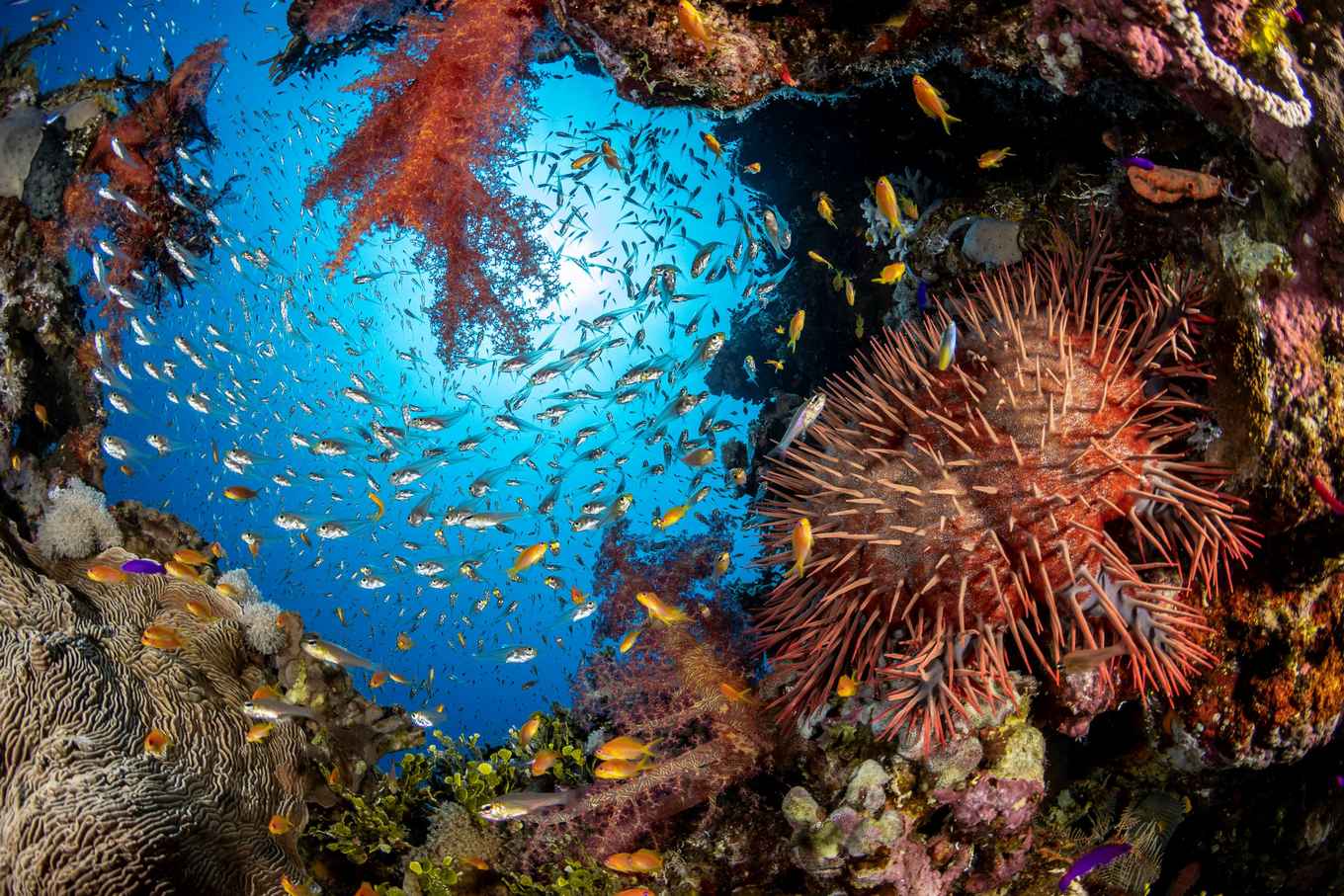COP27 - What tools do we have to improve rapid adaptation and resilience of corals?
7 November 2022

The French National Research Institute for Sustainable Development (IRD) invites COP27 attendees to a side event on coral reef resilience under rapid climate change. A panel of international experts in coral reef science will discuss at the Moana Blue Pacific Pavillon which tools are currently available to improve rapid adaptation and resilience of coral reefs to climate change.
Tropical coral reefs are biodiversity hotspots that provide income and resources to almost one billion people worldwide but they are also the marine ecosystem most endangered by rapid climate change. Nature-based solutions have significant potential to support coral reef adaptation to climate change and include a wide range of approaches.
This side event will focus on what we can learn from nature and existing resilience hotspots, as well as on how we can manipulate corals to improve their stress resilience. Resilience hotspots with naturally stress-resistant coral populations have recently been discovered. Although most corals are highly sensitive to heat and acidification, some already thrive under temperatures and acidity levels worse than projected in future climate scenarios. These natural analogues can therefore provide fascinating insights into the “coral reefs of tomorrow” that can be leveraged to improve coral reef conservation, management and restoration.
This side event is a collaborative project between the French National Research Institute for Sustainable Development (IRD), the ICONA consortium, the Universities of Tsukuba, and Amsterdam, the French National Centre for Scientific Research (CNRS), the King Abdullah University of Science and Technology (KAUST), the Coastal Oceans Research and Development – Indian Ocean (CORDIO), and the Prince Albert II of Monaco Foundation.
Interested?
You can follow the event on Thursday 10 November 2022 from 14:00-14:55 Central European Time online via Zoom by registering using this link.
Panel composition and contacts:
Riccardo Rodolfo-Metalpa, IRD ENTROPIE, riccardo.rodolfo-metalpa@ird.fr
Verena Schoepf, University of Amsterdam, v.schoepf@uva.nl
Sylvain Agostini, University of Tsukuba, ICONA founder, agostini.sylvain@shimoda.tsukuba.ac.jp
Jean-Pierre Gattuso, CNRS-Sorbonne University-Iddri, jean-pierre.gattuso@imev-mer.fr
Raquel Peixoto, KAUST, raquel.peixoto@kaust.edu.sa
David Obura, CORDIO - East Africa, dobura@cordioea.net